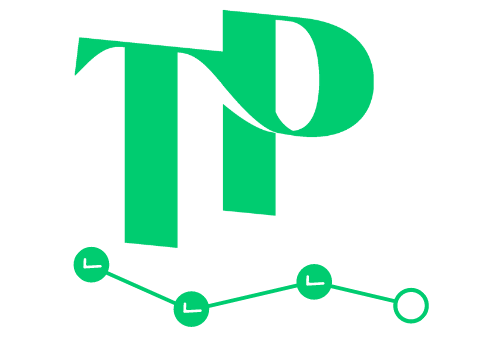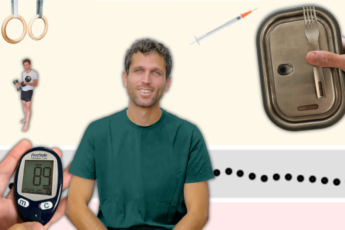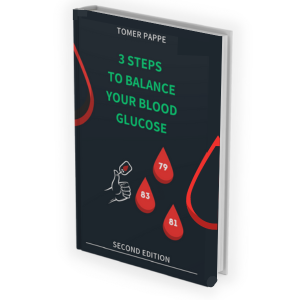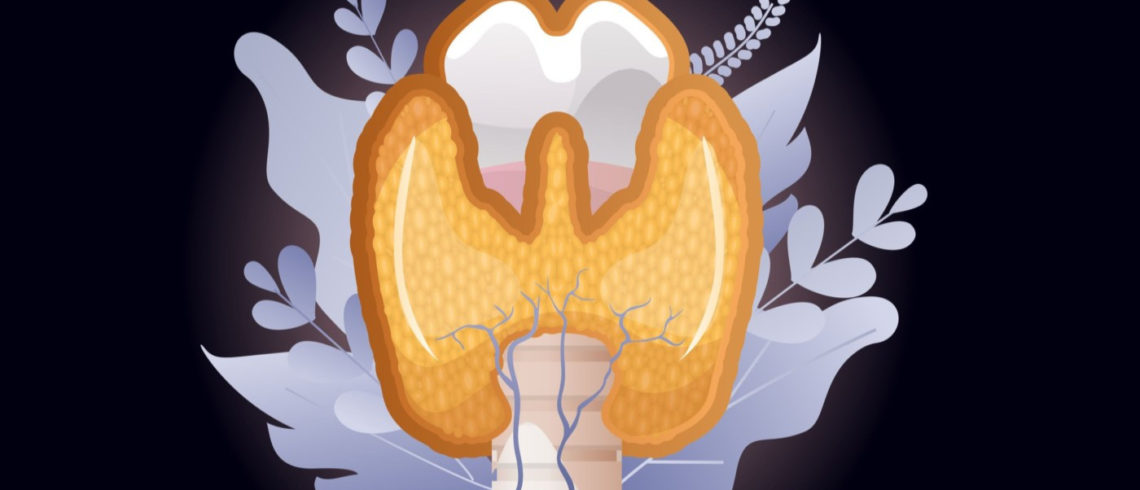
Hypothyroidism – everything I learned
After experiencing hypothyroidism with all the accompanying symptoms and after reading quite a few books on the thyroid gland, I came to the most important question – what caused the thyroid gland to go out of balance in the first place? When I answered this question I came to the solution of the problem. Along the way, I collected from various sources natural techniques for naturally stimulating the thyroid gland, which I will detail later, but first I will give some background on the thyroid gland and its many functions in the body.
What is the thyroid gland?
The thyroid gland or by its other names – the thyroid gland is a butterfly-shaped endocrine gland located in the front of the neck above the collarbone. It is one of the most important endocrine glands in the body and perhaps the most important of them and the hormones it produces are necessary for existence.
What does it affect?
When talking about thyroid hormones, we mainly mean T4 (Tetraiodothyronine) and (Triiodothyronine) T3. With an emphasis on T3, thyroid hormones control the rhythm of all body systems – the rate of food digestion, the rate of our heartbeats and the rate of our thinking at any given moment. also affect: the mood and positive thoughts, temperature regulation and basically everything related to rhythm and heat in the body. In children, thyroid hormones play an important role in regulating the rate of growth and development. All these mechanisms are related to our body’s metabolism and thus the thyroid gland has an effect on all The aspects of our life – emotional and physiological. Besides the hormones T4 and T3, it also secretes the hormone calcitonin, which is responsible, among other things, for homeostasis of calcium in the body, and the less active hormones T2 and T1.
Thyroid hormone secretion is regulated by thyroid stimulating hormone (TSH) secreted by the pituitary gland.
Table of contents:
Why does the level of thyroid function change and when
The body has subtle control mechanisms that regulate thyroid hormone levels. In certain situations, the rate of thyroid hormone production changes depending on changes in the food we eat, rising stress levels, physiological changes and traumas. The thyroid gland responds to changes by producing more hormones or by reducing hormone production. When the body is dealing with ongoing chronic inflammation the body’s ultimate goal is not to add more fuel to the inflammation. The body will do this by lowering the metabolic rate with reduced production and secretion of thyroid hormones. In stressful situations, the body will increase the amount of thyroid hormone production and the amount secreted. Like the other organs in the endocrine system, if the thyroid gland works too hard, i.e. overactive for too long, eventually it will wear out and the ability to produce hormones will decrease, i.e. hypothydoidism.
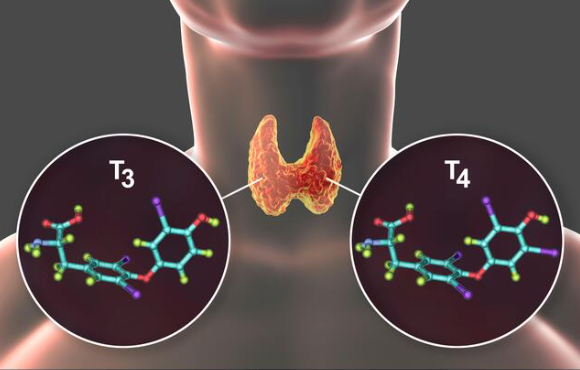
Get to the root of the problem
Based on the books written on the thyroid gland, a partial diagnosis of hypothyroidism is a fairly common condition. This usually happens when an adult woman visits the family doctor and is diagnosed with hypothyroidism based on the result of one test of TSH hormone, even though it is a value that does not test the ability to produce thyroid hormones at all. Most of the time the doctor will automatically prescribe her partially synthetic thyroid hormones like the levothyroxine (T4) pill which in the end probably won’t balance her in the long term. This is a relatively common situation and once again the really important question that I mentioned at the beginning of the article is not asked – what caused the thyroid gland to go out of balance? Malnutrition? Losing too much weight? Hormonal imbalance in another organ? Mental trauma? Exposure to any external or internal poison? Prolonged exposure to mold? As soon as you find the answer to this question, you can usually adjust the correct treatment for the thyroid gland and understand whether the thyroid gland’s hormone production capabilities have been destroyed or perhaps it is a temporary adjustment made by the body’s endocrine system as a response to some physiological change. I think that in today’s world where we are exposed to toxins from so many directions in our daily lives even from the water we drink or the over-processed soil on which the crops we consume grow, finding the root cause that caused the thyroid gland to go out of balance can sound a bit like an impossible task and you should get the help of an endocrinologist to analyze the body holistically. Clinically and according to official data, Hashimoto’s disease is the most common cause of hypothyroidism in the world.
Thyroid imbalance
The Hashimoto’s disease that broke out in me a few years ago is the manifestation of an autoimmune attack characterized by inflammation in the thyroid gland area, when in the final stage of Hashimoto’s disease the thyroid gland is irreparably damaged, that is, chronic underactivity of the thyroid gland. The meaning of chronic hypothyroidism is the inability to produce enough thyroid hormones for normal function. In this situation, it will often be necessary to add hormones externally.
What is Euthyroid? A clinical term describing a state of normal thyroid function. Other thyroid disorders: hyperthyroidism, thyroid enlargement (goiter), thyroid nodules and thyroid cancer. Hyperactivity of the thyroid gland is characterized by excessive secretion of thyroid hormones and the most common cause of hyperactivity is the autoimmune attack in Graves’ disease.
Diagnosis and symptoms of hypothyroidism
In my experience, a complete diagnosis of hypothyroidism requires a panel of thyroid blood tests and not just a TSH test. The full panel of blood tests for the thyroid includes the values: FREE T4, FREE T3, TPO, TgAb and TSH.
Symptoms of hypothyroidism include: severe fatigue, mental fog, sensitivity to cold, constipation, loss of libido, low mood, avoidance of social situations, low blood pressure, higher than normal cholesterol, obesity and hair loss.
The symptoms can appear all together or only one symptom can appear. Hypothyroidism is a phenomenon that is not so easy to diagnose and requires a repeat of the blood tests while at the same time the results of the blood tests must be cross-referenced with the symptoms.
Another symptom that is relatively common but not talked about enough even though it is quite well known to the world of science is depression. Depression is often the result of hypothyroidism that has lasted for many years. Quite a few studies and private cases have been published in recent years about people who were treated with antidepressants for many years and in a simple blood test it was found that their thyroid gland is barely functioning anymore. After treatment with the addition of active thyroid hormones, those patients reported that they no longer suffer from depression and along the way they were cured of all kinds of unexplained symptoms that accompanied them for many years such as hair loss, difficulty concentrating, problems with the digestive system and other symptoms of hypothyroidism.
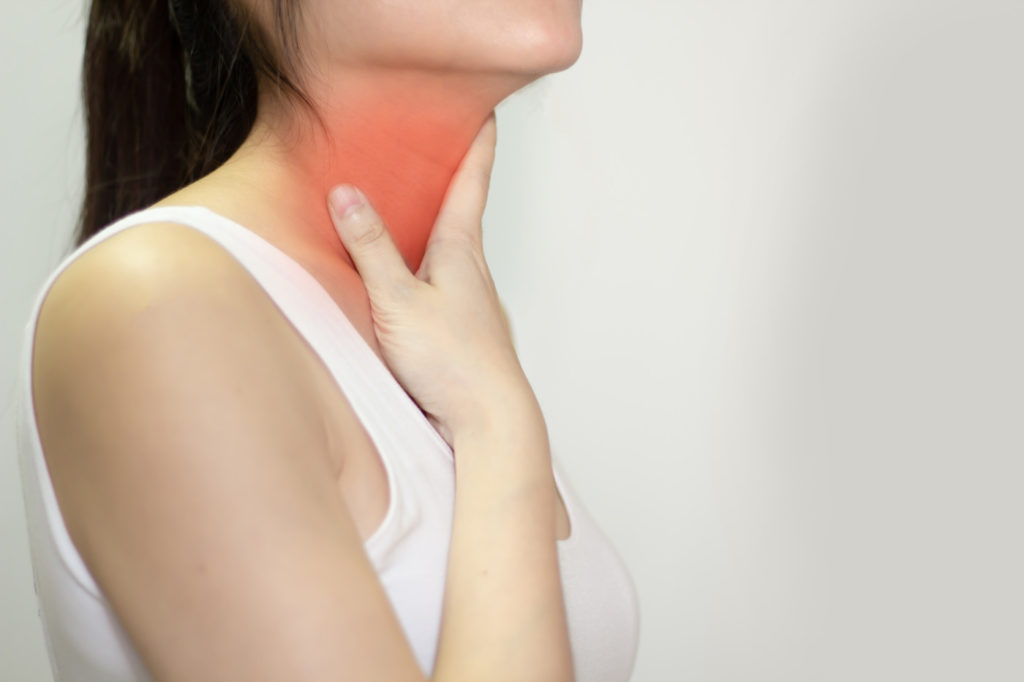
Foods that are best avoided for proper thyroid function
First and foremost – gluten. Most of those diagnosed with thyroid diseases report that removing gluten from their lives resolved most of the symptoms. Beyond gluten, which is known by itself to increase inflammatory processes in the body, excessive consumption of carbohydrates should be avoided as much as possible, as together with gluten, both may accelerate inflammatory processes in the thyroid gland. As with other autoimmune diseases, low-carb protocols such as anti-inflammatory paleo (AIP) and PKD can be an excellent tool for restoring the body and the thyroid, among other things, due to the reduction of inflammation in the body. Another factor that encourages rehabilitation is feeding the body with important nutrients that are abundant in these nutritional approaches. Especially in thyroid problems, consuming food rich in nutrients will give the body the “building blocks” needed to synthesize sufficient amounts of thyroid hormones. Beyond gluten and carbohydrates for normal thyroid function, I noticed that when I avoided foods and drinks such as: caffeine, cocoa, and certain vegetables I felt much better. On that occasion when I chose to clean up my diet, I also made a decision to avoid toxins found in industrial care and cleaning products such as: soap, shampoo, dish soap, laundry soap, toothpaste and any substance that touches the skin or mouth. This is an opportunity to switch to natural cleaning and care products. According to the old rule of “don’t put on your skin what you wouldn’t put in your mouth” – what we put on our skin, which is also the largest organ in our body, is absorbed through the skin and eventually reaches the bloodstream. It’s a relatively simple principle, but in our daily lives we tend not to give it a thought. When we choose products at the pharmacy, we usually don’t think about the fact that those products may have a negative effect on our health.
Natural techniques for stimulating hypothyroidism that I have collected along the way
Moderate and not too high intensity physical activity is an excellent way to speed up the body’s metabolic rate as long as it is done at a reasonable intensity without overloading the body. Such training will be able to give the body the boost to stimulate the organs and glands in the endocrine system. In addition, I discovered that quite a few substances from nature may stimulate the hormonal system and accelerate the activity of the thyroid gland or any other organ that is underfunctioning.
Vanilla extract made from organically grown monil and containing the alcohol naturally found in it may help stimulate the endocrine system. You can add up to half a teaspoon of organic vanilla extract to a drink or lukewarm mineral water. It may also help to stimulate the thyroid gland (stimulation from the tongue to stimulate). I prefer to consume the vanilla extract in the morning until noon and avoid consuming the extract in the evening so as not to cause sleep problems.

Another example of a food that ancient cultures would use for arousal are unsteamed dates. Dates in their natural form encourage thyroid activity. According to tradition, it is customary to consume the dates in combination with animal fat such as butter for optimal absorption, and so I did. I also made sure to consume the dates with the fat in the morning until noon.

Situations in which the thyroid gland will not be able to heal naturally
- Chronic underactivity of the thyroid gland due to Hashimoto’s disease that has not been treated for years.
- Thyroidectomy is the most common treatment for thyroid cancer and in such a case the patient must supplement with external hormones for the rest of his life. If supplementation is done in the right doses and with the right hormones, the patient can enjoy the same life expectancy and quality of life as a person with a functioning thyroid gland.
- Goiter – I have already mentioned this condition as a cause of overactivity of the thyroid gland. Sometimes in goiter (Thyroid increases). The way of treatment is the use of radioactive iodine which reduces the volume of the gland. The treatment often causes hypothyroidism due to the loss of a significant part of the thyroid gland. As in the other cases, even after treatment with radioactive iodine, quality and correct treatment with the right hormones and in the right doses will allow the patient to enjoy a quality life.
In conclusion
All of the natural techniques mentioned above helped me at some point until and including hormone supplementation when I had no other choice. It is important to remember – gluten and the thyroid gland is a problematic combination for most patients. Sometimes after a period of fully implementing all these instructions the situation may remain as it is and then it may be necessary to use some natural supplement of the thyroid gland such as Thyroid Glandular Supplement. Finally, if neither the change in diet nor natural stimulants have helped, nor the supplement, you should contact your doctor and consult with him about thyroid hormone treatment. In the case of hormone supplementation, what saved me was that I found doctors who treat full supplementation of the active hormones T4 and T3 and not just T4 (lebutroxine) which is usually given by default to treat hypothyroidism. T4 is often insufficient to treat hypothyroidism due to its being a storage hormone. The combination of T4 and T3 is often a more complete treatment because most of those suffering from hypothyroidism have a problem with the conversion between T4 and T3. T3 used to be called the “life-giving hormone” because it is the most active hormone among them. For many patients with whom I spoke, butroxine (T4) alone was not enough and most of the symptoms remained with such treatment. T4 is converted to T3 when needed and most of the T4 is stored by the body for future use. There are synthetic sources of T3 and T4 and natural sources such as NDT-
(Natural Desiccated Thyroid). The various treatment options and an accurate diagnosis should be consulted with the attending physician.
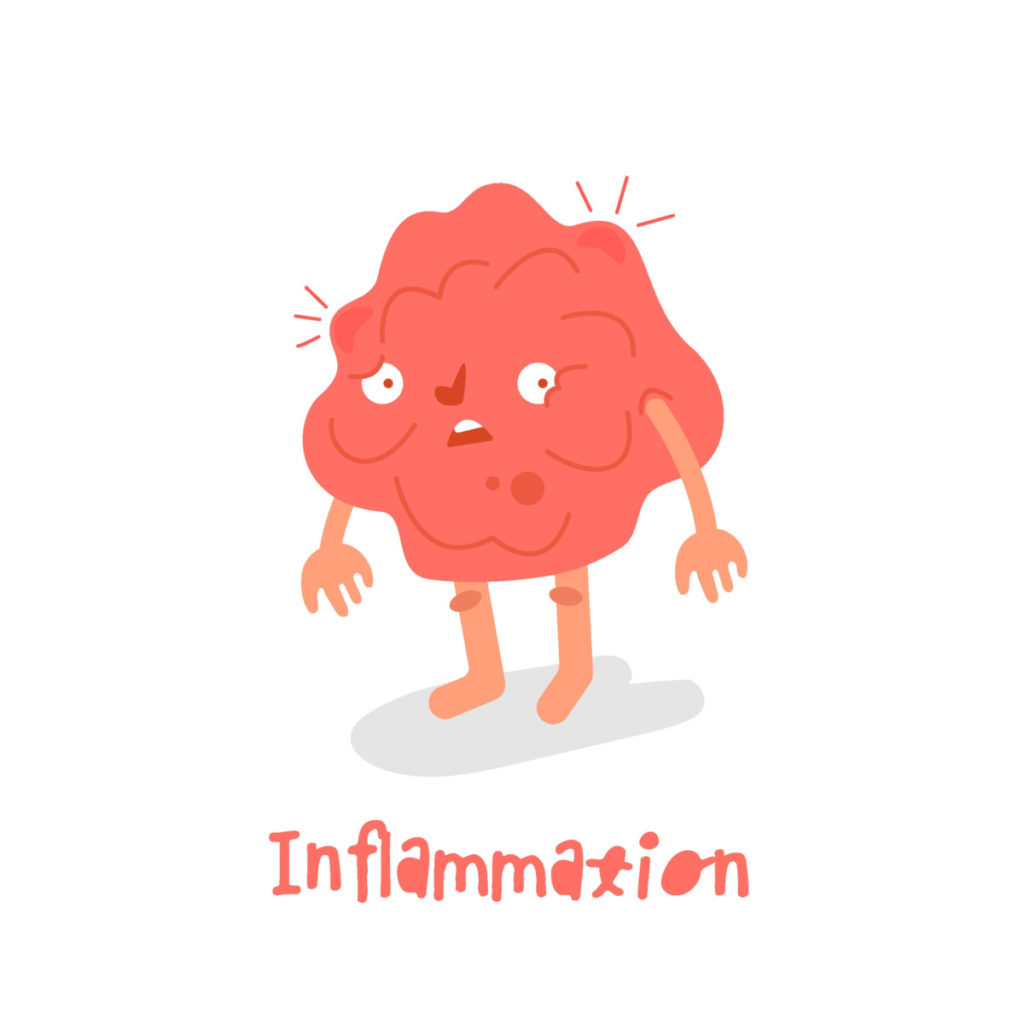
*The information on this website is not intended to be a substitute for professional medical advice, diagnosis or treatment. The said information is intended for informational purposes only and stems from personal experience. The text is not intended to diagnose, treat or cure any specific disease or medical condition. Reviews and testimonials about nutrition, training and various health approaches represent individual experiences and what is stated on the site does not guarantee any results for your specific situation. Any choice of a specific way of eating or medical treatment according to a given situation should be made under the guidance of professionals qualified to do so.
